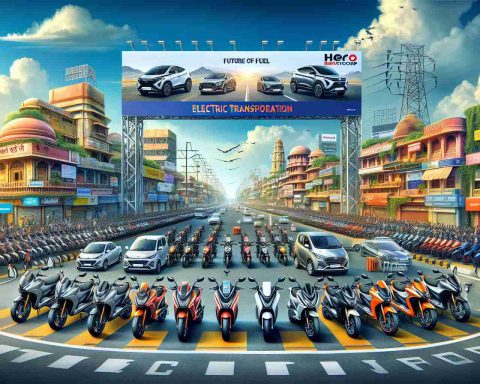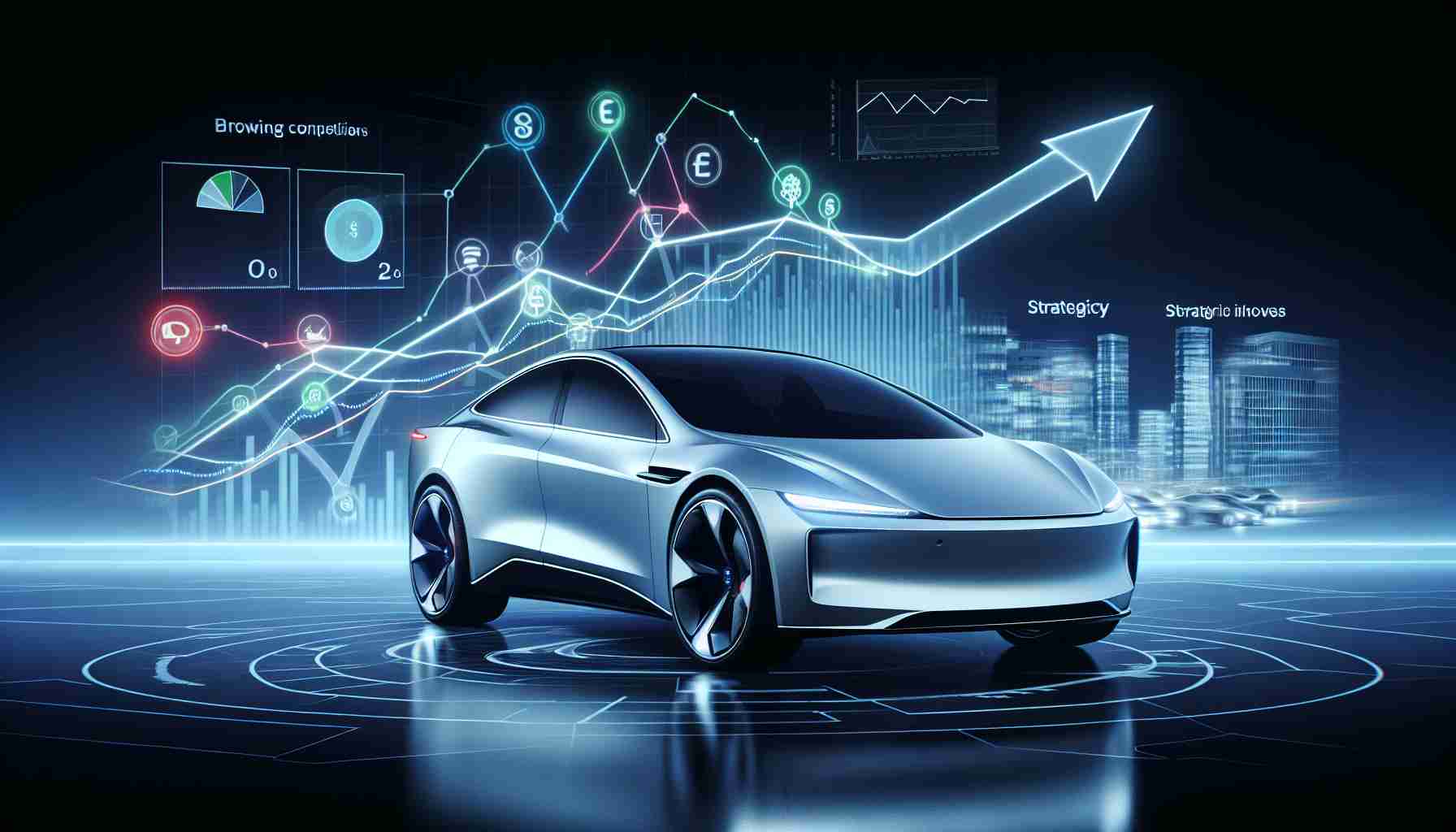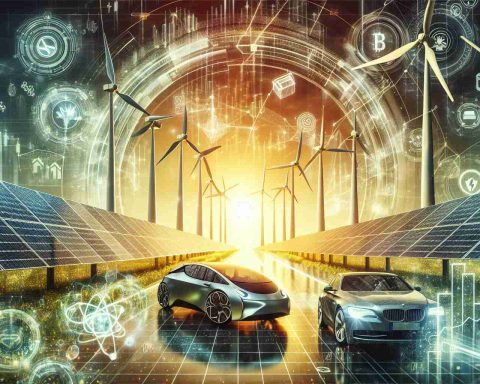Japan’s electric vehicle (EV) sales have reportedly plummeted by a staggering 33% in 2024, reflecting a significant downturn in demand. This is a notable shift, especially as foreign brands are exhibiting strong sales amid the decline.
Analysts attribute this drop to several factors impacting local manufacturers. A sluggish response to evolving consumer preferences and competitive pressure from international automakers have contributed to the slump. Meanwhile, brands like Tesla and Volkswagen are capitalizing on this market shift, gaining traction with Japanese consumers who seek advanced technology and sustainable solutions.
In contrast to the drastic fall in overall sales, foreign companies have seen a robust demand for their models, suggesting that Japanese buyers are increasingly turning to overseas options. This trend underlines a growing discontent with domestic offerings and highlights the challenges local automakers face in innovating and adapting their strategies.
As the automotive industry rapidly pivots towards electrification, Japan’s traditional market leaders may need to reevaluate their approaches to regain consumer trust and market share. Ultimately, the evolving landscape raises questions about the future of Japan’s EV sector and the potential long-term effects of this sales downturn.
Implications of Japan’s EV Sales Decline
The recent 33% decline in electric vehicle (EV) sales in Japan signals a profound shift in not only the automotive market but also the broader societal and economic landscape. This trend invites scrutiny of how consumer behavior is evolving and the varying responses of domestic and foreign brands within a rapidly changing global market.
The implications of this downturn extend beyond mere numbers. It reflects a growing dissatisfaction among Japanese consumers with local manufacturers, whose responses to technological advancements and changing preferences have lagged behind their international counterparts. As Tesla and Volkswagen showcase high-tech, user-friendly solutions that resonate with eco-conscious buyers, Japan’s automotive giants face existential questions about their innovation strategies and market relevance. This cultural shift towards foreign brands suggests a potential crisis of confidence in Japan’s traditional industrial strengths, challenging longstanding perceptions of local supremacy in automotive engineering and technology.
Moreover, the decline in EV sales may have significant ramifications for Japan’s economic landscape. The automotive sector is a crucial pillar of Japan’s economy, supporting millions of jobs and contributing substantially to GDP. A sustained downturn in this sector could lead to wider economic implications, including job losses, decreased investments in research and development, and potential ripple effects through the supply chain. In an era where sustainability and climate change are pressing global issues, Japan’s ability to pivot toward greener technology will not only impact its economy but also shape its role in the global transition to electrification.
Environmentally, the implications are equally pressing. The momentum for EV adoption is critical for meeting climate goals and reducing carbon emissions. If domestic sales continue to falter, Japan may fall behind in global initiatives aimed at sustainability and reducing reliance on fossil fuels. The reliance on foreign brands, while initially appealing due to technological advancements, might hinder Japan’s environmental objectives if local manufacturers do not step up to innovate within their own markets.
Looking ahead, the current landscape suggests a few potential trends. Japanese automakers might shift their focus towards partnerships with tech companies or invest heavily in R&D to cultivate the next generation of EVs that align more closely with evolving consumer preferences. Additionally, there could be a more intense emphasis on enhancing local production capabilities to minimize reliance on foreign imports.
In conclusion, the decline in Japan’s EV sales is not merely a statistic but a wake-up call for the nation’s automotive industry and broader economic framework. As market dynamics shift and consumer tastes evolve, the responses from local manufacturers will be crucial in determining the long-term significance of this downturn and ensuring Japan’s competitive edge in the global EV market.
Navigating Japan’s Electric Vehicle Sales Decline: Insights and Considerations
Japan’s electric vehicle (EV) market is experiencing unprecedented challenges, with a reported 33% drop in sales in 2024. As local manufacturers grapple with this downturn, understanding the intricacies of the situation is critical for stakeholders involved in the automotive sector. Here’s a closer look at some potential angles to consider for consumers and industry players alike.
FAQs: What Caused the Sales Decline?
1. Why have Japan’s EV sales fallen so sharply?
The decline can be attributed to a combination of slow adaptation to changing consumer preferences by local manufacturers and the intense competition posed by foreign brands. Many Japanese consumers are increasingly drawn to vehicles that offer cutting-edge technology and sustainability, which foreign brands like Tesla and Volkswagen are effectively providing.
2. Are Japanese manufacturers losing consumer trust?
Yes, many consumers are showing signs of discontent with domestic EV offerings, indicating a need for Japanese automakers to innovate and enhance their products to meet evolving expectations.
How-Tos: Reviving Interest in Japanese EVs
1. Innovate with Technology
Japanese automakers must prioritize technological advancement to remain competitive. Investing in research and development for superior battery technology, autonomous driving features, and connectivity could help regain consumer interest.
2. Enhance Marketing Strategies
It’s crucial for local brands to revamp their marketing to highlight unique selling points, such as Japanese craftsmanship, sustainability practices, and long-term reliability, to attract buyers who are swayed by foreign competitors.
Pros and Cons: Evaluating the Market Shift
Pros
– Increased Competition: With the influx of international brands, consumers benefit from more choices in terms of price, features, and technology.
– Potential for Innovation: The need to compete with foreign manufacturers may drive innovation within Japanese companies, leading to advancements that can reshape the industry.
Cons
– Loss of Market Share: Continued decline could result in a significant loss of market share for local automakers, threatening their viability and leading to potential layoffs.
– Erosion of Domestic Brands: If consumer preferences continue to shift towards foreign vehicles, it may undermine the traditional automotive identity of Japan.
Related Insights: Future Projections
Industry analysts predict that if Japanese manufacturers do not adapt swiftly, foreign brands could dominate the EV sector in Japan within the next few years. Additionally, consumer awareness about sustainability and the environmental impact of their vehicle choices is likely to increase, pressuring all manufacturers—domestic and foreign—to align their offerings with sustainable practices.
In summary, Japan’s electric vehicle landscape is at a crucial turning point. Local manufacturers need to move quickly to assess their strategies, reevaluate their product offerings, and embrace innovation to survive in an increasingly competitive market. This situation serves as a valuable case study for other automotive markets facing similar challenges globally.














